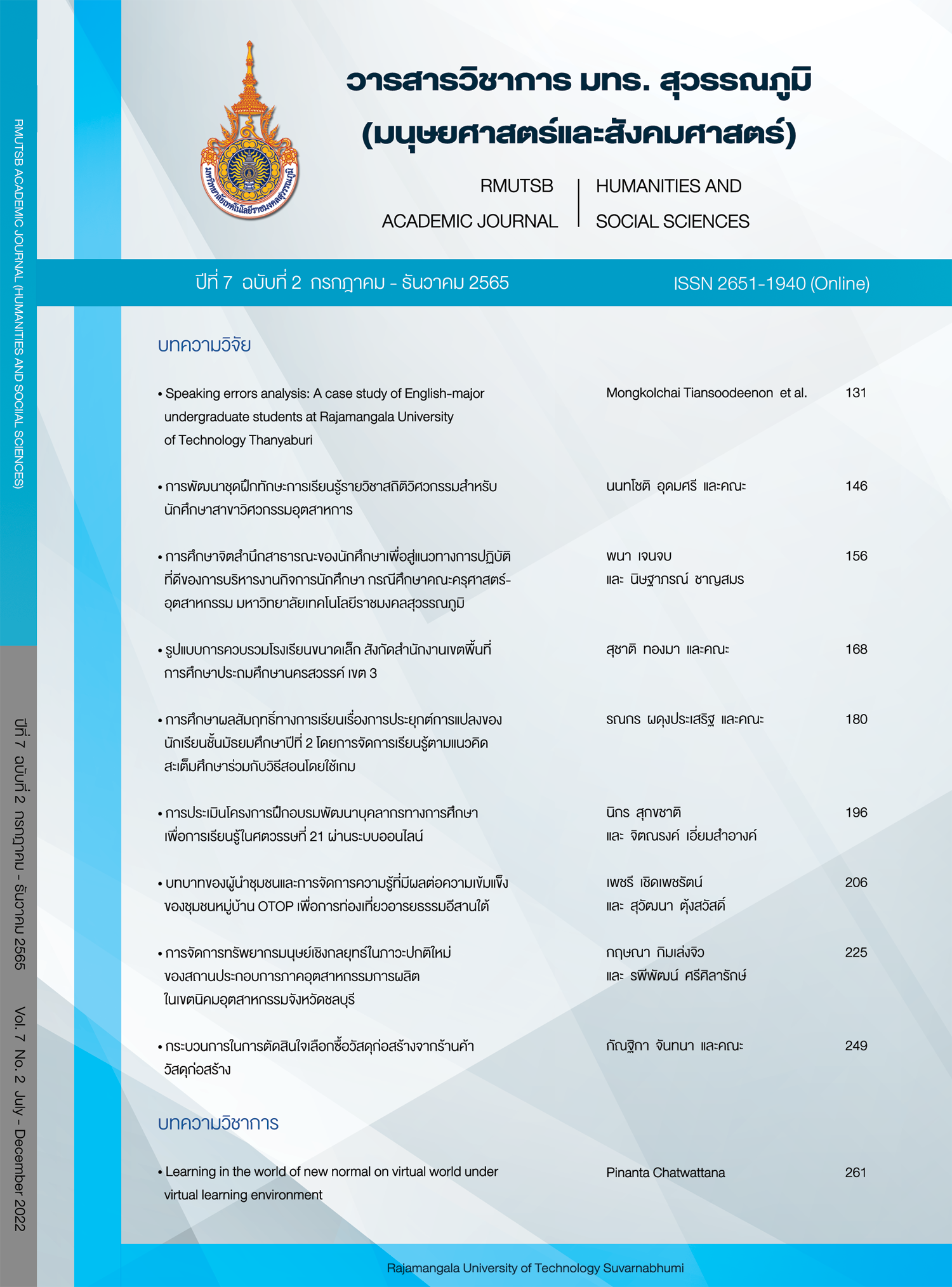Evaluation of the training program for the development of educational personnel for learning in the 21st century through online system
Main Article Content
Abstract
The purposes of this research was to evaluate the training program for the development of the educational personnel for learning in the 21st century through online system using Stufflebeam’s CIPP evaluation model. The research samples consisted of 15 administrators and committees and 152 educational personnel by setting the table of Krejcie & Morgan. The research instrument was evaluation form for educational personnel training program. The collected data were analyzed by mean and standard deviation. The results of the evaluation considered appropriated at high level (=3.96, S.D.=0.47). When considering each side, it was found that the participants considered appropriated at high level for 4 sides which consisted of context (
=3.91, S.D.=0.43), input (
=4.04, S.D.=0.53), process (
=3.89, S.D.=0.40), and product (
=3.98, S.D.=0.50).
Article Details

This work is licensed under a Creative Commons Attribution-NonCommercial-NoDerivatives 4.0 International License.
References
Hiranoon, J. (2019). The development of training curriculum to enhance the 21th century learning skills for bachelor of science in technical education students. RMUTSB Academic Journal (Humanities and Social Sciences), 4(2), 220- 231. (in Thai)
Krejcie, R. V., & Morgan, D. W. (1970). Determining sample size for research activities. Educational and Psychological Measurement, 30, 607-610.
Krichkriwan, M., & Meemuy, A. (2019). Evaluation of mathematics teacher development training project to prepare to participate in PISA 2018 project according to CIPP model. Journal of Education BangkokThonburi, 7(2), 119-136.
(in Thai)
Office of the Education Council: ONCE. (2017). Thailand education scheme in brief B.E. 2560-2579. Bangkok: Prigwan Graphic. (in Thai)
Panpinit, S. (2017). Project planning and evaluation technique. Bangkok: Withayaphat. (in Thai)
Promjui, S. (2009). Project evaluation techniques (6th ed.). Bangkok: Jatuporn Design. (in Thai)
Rodpraphan, Y. (2018). An evaluation of moral school by CIPP model of Wat Huay Than Tahan School Nakhon Sawan Primary Educational Service Area District Office 3 (research report). Nakhon Sawan: Wat Huay Than Tahan School. (in Thai)
Saelee, S. (2014). An assessment of returning teachers to students project by applying CIPP model in schools under Kanchaburi Primary Educational Service Area Office 3 (Maste’s thesis). Kanchanaburi Rajabhat University, Kanchanaburi. (in Thai)
Stufflebeam, D. L. (1983). The CIPP model for program evaluation. Boston: Kluwer – Nijhoff.
Wongrattana, C. (2010). Techniques for using statistics for research. Bangkok: Thapnaramit. (in Thai)


